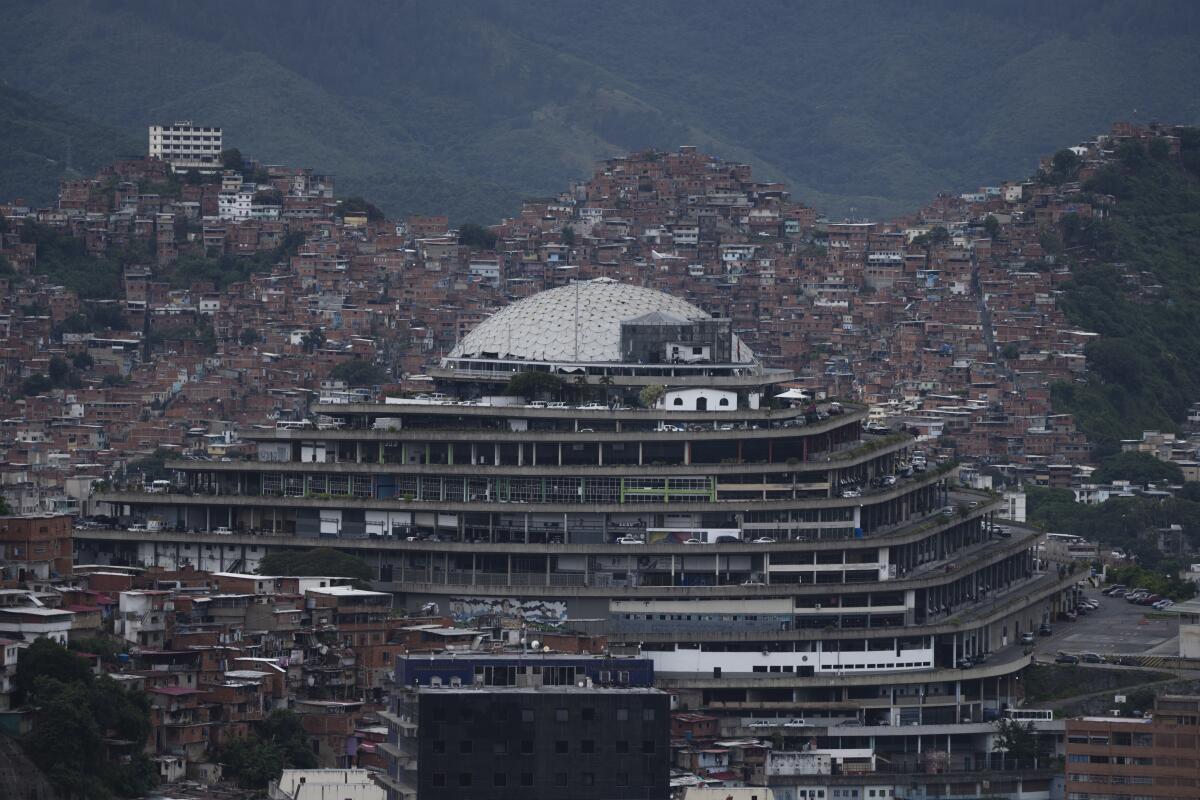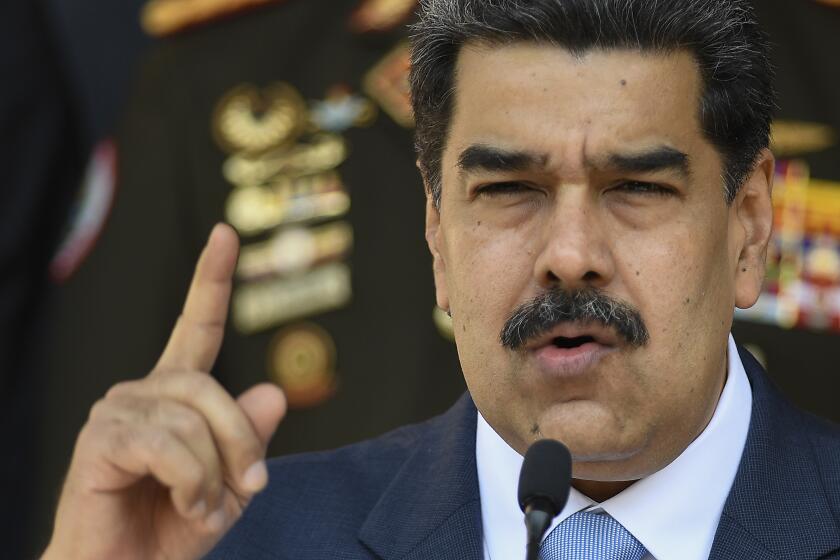Venezuela rejects U.N. report detailing torture and human rights abuses

- Share via
GENEVA — Venezuela’s government on Monday rejected a report by independent experts working with the United Nations’ top human rights body who alleged President Nicolas Maduro had personally ordered the detention of government opponents, who endured electric shocks, asphyxiation and other cruel acts while in custody.
Hector Constant Rosales, Venezuela’s ambassador in Geneva, rejected the report released last week by the experts working for the U.N.’s Human Rights Council as a “pseudo report” that masked “obscure interests” opposed to the South American country. The government had not previously responded to the report — the third in a series from the council’s fact-finding mission on Venezuela.
Speaking to the council, Constant blasted the “terrible politicization” of the 47-member-state body, saying the report “this time goes beyond the limits of the unspeakable, incorporating direct accusations against the president and other high authorities of my country.”
The latest report revealed new details on a string of rights violations — including possible crimes against humanity — under Maduro’s tenure, and presented accusations against members of his inner circle, such as ruling party leader Diosdado Cabello.
It also said Maduro had ordered torture in some cases, but provided no details of specific instances. The fact-finding mission’s leader, Marta Valiñas, told the Associated Press last week that such a conclusion was reached based “on different but consistent testimonies.”
The evidence gathered by the U.N.-backed experts could one day be used by the International Criminal Court or by any country that might apply “universal jurisdiction” to prosecute alleged crimes against humanity.
The mission was established in 2019, and its mandate was later extended until this month. The council has not yet voted on extending the work of the mission, whose two previous reports highlighted steps that the Venezuelan government has taken to repress any real or perceived opposition.
Independent experts commissioned by the U.N.’s top human rights body say Venezuelan President Nicolas Maduro’s government is responsible for crimes against humanity.
The earlier reports raised concerns about Venezuela’s judicial system and detailed crimes such as extrajudicial executions, enforced disappearances, arbitrary detentions and other acts carried out by Venezuelan authorities since 2014, the year after Maduro took office following the death of President Hugo Chavez, and a complex crisis took hold in the country.
Venezuela’s Bolivarian National Intelligence Service applied tactics such as beatings, electric shocks, asphyxiation with plastic bags and stress positions, as well as threats to kill and rape detainees, according to the latest report. The main targets included opposition leaders, students, journalists and people working for nongovernmental organizations, it said.
Maduro’s government has not allowed the U.N.-backed experts to enter Venezuela or responded to over 20 letters they sent to authorities.
Western countries expressed support for the mission, with European Union Ambassador Lotte Knudsen saying the bloc was “seriously concerned about the protracted human rights crisis in Venezuela and the reported shocking human rights violations by state mechanisms and officials in the context of political repression and anti-crime operations.”
Russia, Iran, Cuba and Nicaragua were among the countries that came to the defense of Maduro’s government.
More to Read
Sign up for Essential California
The most important California stories and recommendations in your inbox every morning.
You may occasionally receive promotional content from the Los Angeles Times.











